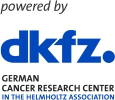Speaker
Description
Anelloviruses are circular ssDNA viruses and endemic in the human population, causing persistent, yet dynamic infections. Due to the lack of in vitro models, their interaction with the human host, namely the innate immune system, is largely unknown. However, they must be under constant control through (innate) immune mechanisms, since immunosuppression leads to viral rebound. To date, epidemiologic studies could not conclusively demonstrate a causal connection between anellovirus infection and human pathology. Rather, they are seen as part of the human virome and as such might shape the human immune system.
The high-throughput computational pipelines for virus discovery developed by the Seitz lab, allow the detection and assembly of anellovirus sequences from publicly accessible and protected NGS data sets. Previously, they found that strains of co-occurring anelloviruses (swarms) are closely and specifically associated with certain malignancies. This massive data driven approach does not only provide a rationale to study host-pathogen interaction and innate sensing of anelloviruses, but also a unique opportunity to understand the host cell tropism and genetic background that would allow in vitro experiments.
Using modern molecular biology tools, we now want to investigate anellovirus-host interaction in the wet-lab. For this purpose, I will 1) confirm infection events in patient samples on the DNA, RNA and protein level; 2) analyze the immunogenicity of anellovirus infection and anellovirus derived nucleic acids; 3) assess the carcinogenic potential of anellovirus infection; 4) investigate the function of anellovirus ORFs in host-pathogen interaction and immune evasion.
Both the analysis of anellovirus immunogenicity and the study of its carcinogenic potential will benefit tremendously from an in vitro infection model, which will be one of the first priorities of our research. We are convinced that this will offer new and fascinating insights into anellovirus host-pathogen interaction.
| Research type | Basic research |
|---|

